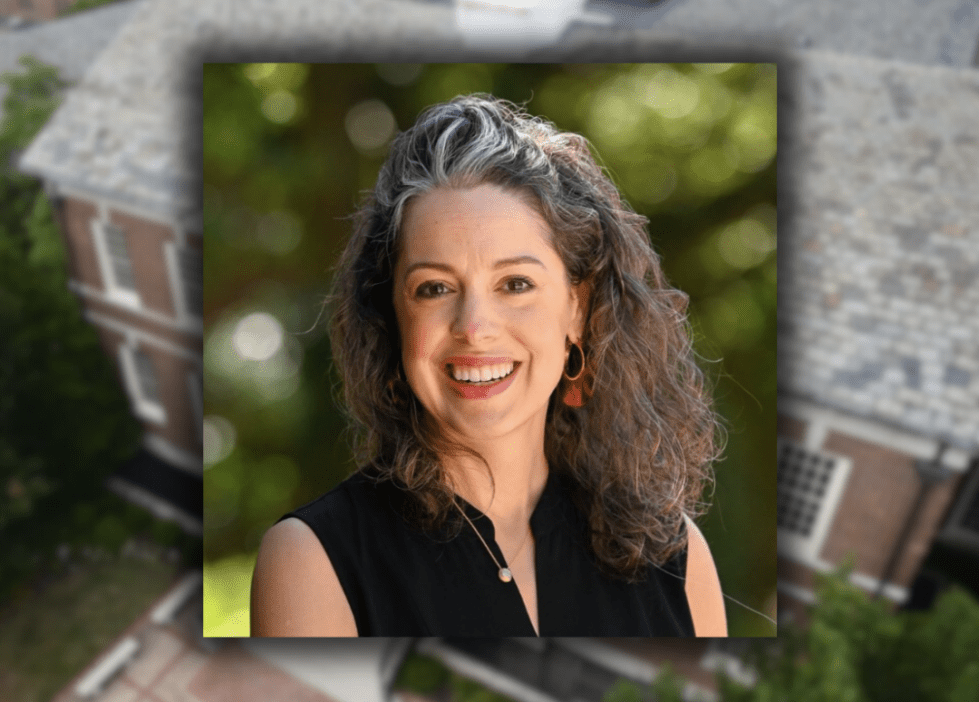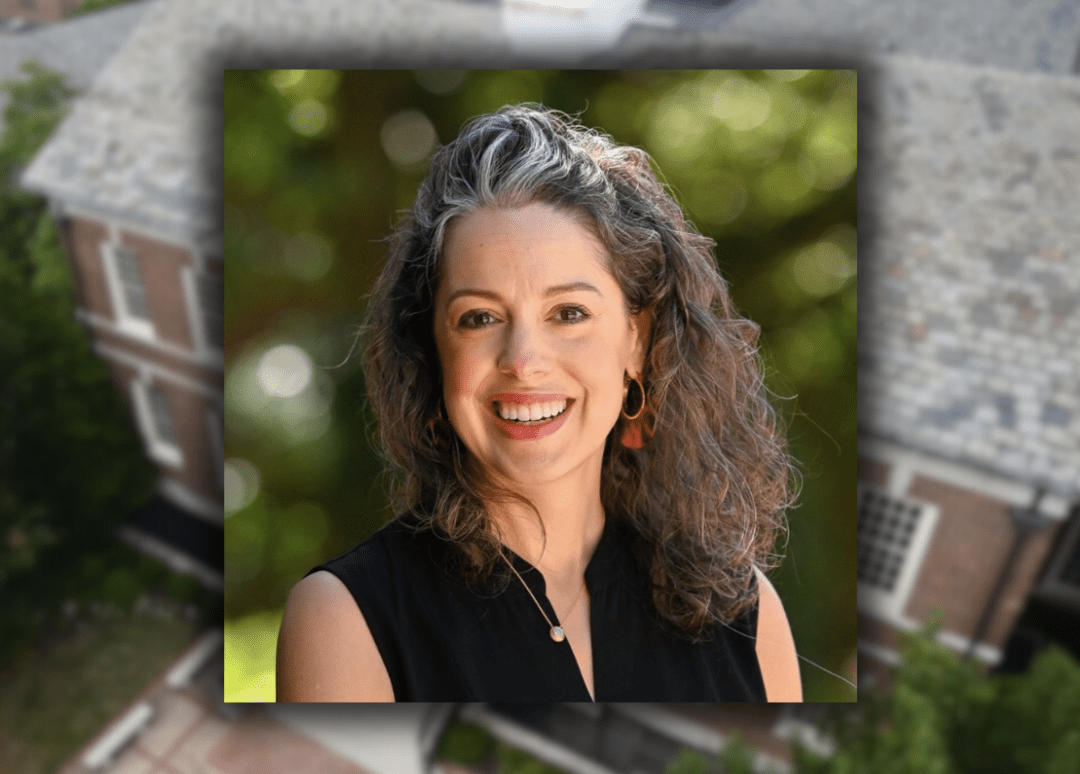Tower Hill’s new head of school Sarah Baker believes her job is to be the chief storyteller of the Wilmington private college preparatory school.
“There’s a great quote by C.S. Lewis, ‘We read to know we are not alone,’ and I believe that,” she said.
Baker, who graduated from Duke University with a degree in history and a minor in Latin and developmental psychology, said her passion throughout her time as an educator has been teaching students how to write.
“I was particularly connected to the opportunities for self-expression that kids had in the English classroom,” she said.
In 2010, Baker earned her master’s of education from the University of Pennsylvania.
Books are a huge part of Baker’s life, and she’s brought that love for literature into her household with her husband Scott, her 5-year-old son Cover and her 2-year-old daughter Alice.
Their lives revolve around food, books and physical activity, she said.
“We read with the children every day for long periods of time, and our son is really starting to be able to read himself which is exciting.”
The family cooks together and loves going to farmers markets or to the Italian market in Philadelphia, where Baker roamed as a child.
“We gather up what we need to make things, and my son loves to throw dinner parties with me, which is just the coolest thing,” she said.
Baker typically finishes a book a week, but has a constant rotation of a fiction book, a nonfiction piece and a food memoir, which she said is her favorite to read.
“Writing food memoirs is actually an elective course I taught here at Tower Hill, where kids wrote their own food memoirs and at the end of the course finished multi-chapter works,” she said. “They were just remarkable for what they were expressing with themselves and their families by talking about their food traditions.”
When reading nonfiction, she tends to pick books that deal with history or ones that are related to her practice as an educational leader.
Baker’s favorite fictional author is Alice Monroe.
“The way she talks about the experience of a woman, particularly the life phases of many of the women in her stories, is meditative for me to read,” she said. “I used to read them sometimes to better understand my mom and now I read them to better understand myself.”
She’s such a reader that she even has her rotation of books in her email signature.
Right now it reads: “Just Read: Stolen Focus by Johann Hari. Reading Now: Demon Copperhead by Barbara Kingsolver. Reading Next: Uncommon Sense Teaching by Barbara Oakley.”
Baker wants to help students to find and explore what absorbs and thrills them.
“And we want to make sure that they don’t define themselves too early,” she said. “It’s important that they have room to surprise themselves and to continue to branch out.”
Baker used to write poetry.
“For some reason I’m in a bit of a dry spell with poetry,” she said, “but right now my creativity is really coming through in my cooking.”
Baker said her journey in education started when she went to Episcopal Academy in Newton, Pennsylvania, from kindergarten through 12th grade.
“I learned the intimacy of a small community and the impact they have on a student’s sense of self-worth, value and confidence,” she said.
Part of her experience includes working at Episcopal Academy for seven years, serving as the dean and later chair of upper school English. She’s also taught English for several years.
Baker first started working at Tower Hill two years ago as head of the upper school.
Prior to that, she was the assistant head of the Upper School at Collegiate School in Richmond, Virginia, while serving as an associate instructor and mentor in her graduate program.
She said her transition from teacher to administrator has been smooth, but she holds teaching near and dear to her heart.
“There’s nothing like teaching for the immediacy of the impact that you can make on a child,” she said. “I love sitting with students and talking about what the content means to them, what skills they are developing and to think about where they are on their trajectory and sort of balancing helping them discover new abilities and capacities and also really dig deeply into those that they already know and show.”
Soon into her work as an admin, she noticed that the best leaders were teachers and their teams.
“If you’re really going to be a school that is continually a learning organization itself and models the best way of doing it to kids, that actually really has to be happening at every level all the way up through the administration,” she said.
Tower Hill was founded in 1919 and has 847 students at its lower, middle and upper schools. Tuition. Fees range from $25,800 to $33,800.
Baker has no plans to dramatically change Tower Hill.
“There’s so much about Tower Hill that should stay the same and that we should fiercely protect,” she said, “and it’s the stuff that I realized about the school when I first met it.”
Some of those elements, she said, is a Montessori culture of mentorship and community, as well as socially and holistically developing children.
“One of my goals this fall is leading a strategic planning process with trustees and a group of constituents from across the community, including students,” she said. “We need to be very careful to know what should not change and not think about the plan as an about-face in any way but rather focus on how we can continue to safeguard what’s wonderful about this community.”
The school is set to publish a 3-year strategic plan sometime next school year.
Baker consistently reminds herself not to pretend that after two years in the community she knows what buttons to push to lead it well, which is why she’s so determined to listen and engage Tower Hill families to gauge their needs.
“I see my role, even though I’ve been here for two years, as one that is primarily responsible for asking good, strategic, catalytic questions,” she said. “I need to be engaged with the mind of a learner and I need to be curious and I need to ask questions, and eventually, I’ll need to use what I learned from people’s genuine responses to those questions to make good decisions and then assess their outcomes.”

Raised in Doylestown, Pennsylvania, Jarek earned a B.A. in journalism and a B.A. in political science from Temple University in 2021. After running CNN’s Michael Smerconish’s YouTube channel, Jarek became a reporter for the Bucks County Herald before joining Delaware LIVE News.
Jarek can be reached by email at [email protected] or by phone at (215) 450-9982. Follow him on Twitter @jarekrutz
Share this Post





